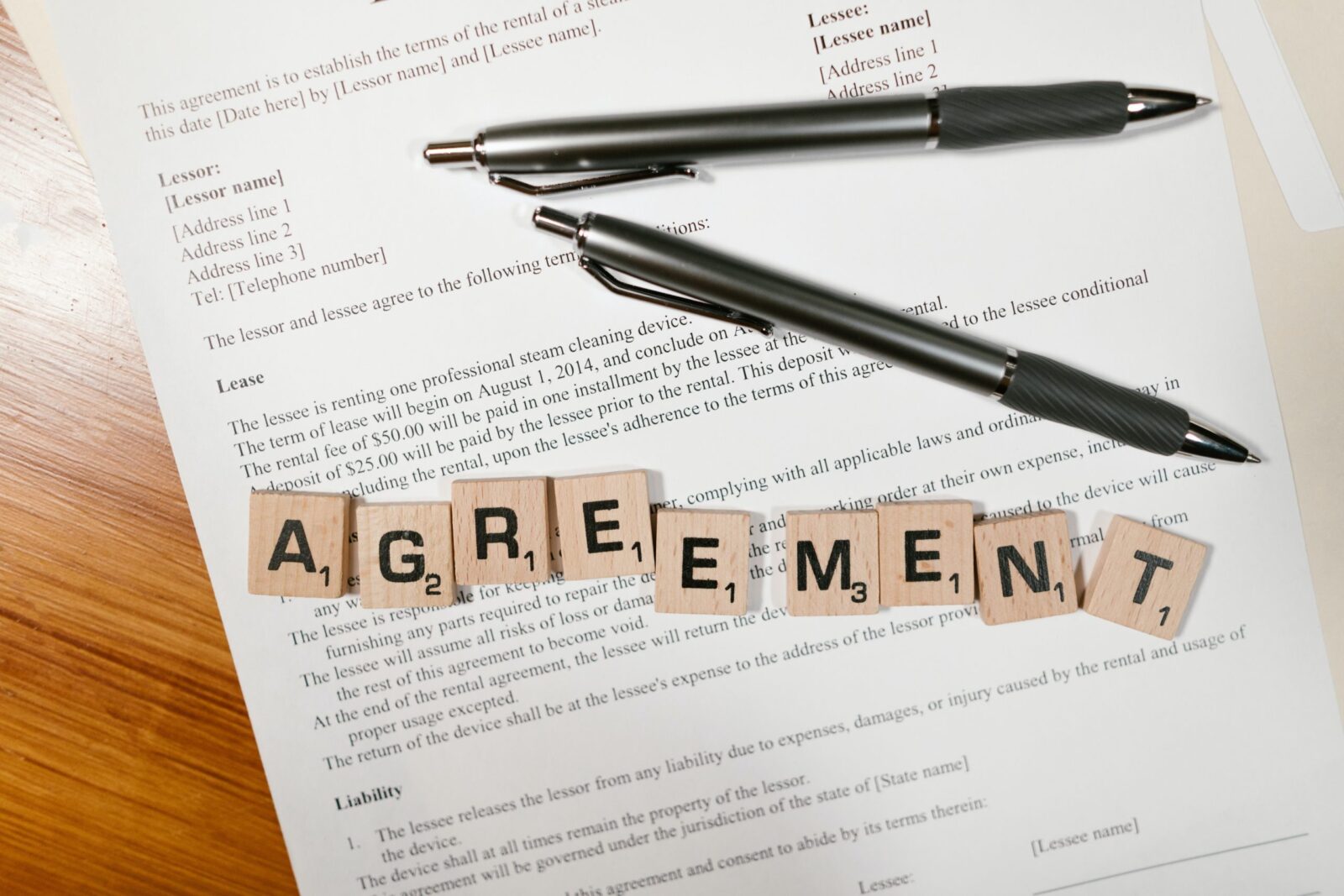
A lease contains the duty and rights of both the homeowner and the tenants. It’s not only a binding contract between both you and the property manager, it’s also a highly influential document full of essential business details, such as how long tenants can stay in the rental unit and the rent payment due each month.
A homeowner may decide to break a lease for several reasons, such as unpaid rent and damage to the property. But when an individual paying rent breaks a lease, there could be legal and financial repercussions. While breaking a lease can have financial and legal consequences, there are situations when it is imperative to do so.
When you find yourself in such a position, you must understand what happens if you break a lease and that, although you can be held liable for the remaining renti, this can be mitigated by the homeowner, who must make reasonable efforts to re-rent the property.
What Is a Lease?
Whether you’re trying to get a new place for college, a new job, or just wanting to change your environment, renting a new apartment is an exciting experience. It’s also potentially annoying when you consider the price of the apartment, moving all of your items in, unloading, and getting a good roommate.
The only variable in apartment life is the lease. A lease is a signed agreement between a tenant and a homeowner that gives a tenant the right to stay in the rental unit for a certain period.
Advantages of Leasing
Better Stability
Stability is the major advantage of a lease. You’re authorized to stay in the home through the contract period unless you stop paying rent or legally break the lease. It’s an excellent arrangement for someone sure they want to stay in a place for a long time.
No Rent Increases
The landlord is legally bound not to increase the rent for the contract period. Once you’ve signed a lease, you’re subject to the monthly rent mentioned in that document.
Disadvantages of Leasing
Less Flexible
The truth is you have lower flexibility when signing a lease. You’ve agreed to stay in a place for the agreed amount of time mentioned in the contract or agreement. That means if the cost of rent goes down, you might find yourself paying higher rent than someone who moved more recently.
Difficulty Moving Suddenly
If you have sudden life changes, such as getting a job in another part of the country or need to relocate back home to help out during a family disaster, a long-term lease can become a hurdle, and that is because you can’t move out till the lease ends.
Difference Between a Lease Agreement and a Rental Agreement

As a homeowner, a new tenant expects you to know it all, whether you manage rentals and properties full-time or lease out a single home as an additional form of income. Whatever the case may be, there is constantly one point of confusion: what is the difference between a rent and lease agreement?
Frequently, the terms rental agreement and lease agreement are used interchangeably to mean the same thing. But these terms refer to two different types of agreements. Both rental and lease agreements are legally binding documents. But each provides a very distinct purpose. Below, we will discuss the significant differences between a rental and a lease agreement.
Lease Agreements
You can not change the duration of the rental lease and the amount of money you’ll be paying, this ensures that the owners of rental properties can’t increase the rent, and the tenant can’t leave the property unless the lease expires or the landlord agrees.
This agreement is efficient for the particular time mentioned in the agreement and is considered complete. If the tenants want to stay in the property, both parties must get into a new agreement.
A homeowner doesn’t need to renew the previous lease terms and can alter the rent and months for old and new tenants. For this reason, some tenants prefer to sign a lengthy lease if the month’s rent is very sensible and in a location where rents are likely to increase during the lease period.
Rental Agreements
One of the major differences between a rental and lease agreement is that it is not a lengthy contract and is usually carried out on a month-to-month basis. This month-to-month agreement concludes and then renews each month upon agreement of the landlord and tenant.
All the same, conditions are added in a month-to-month lease as are in a regular lease, however, either the homeowner or the tenant can change the terms of the agreement at the end of each month. The landlord has the right to ask that you pay additional rent or request that the tenant vacates the property without breaching the agreement. However, a homeowner must give proper notice before asking the tenant to vacate the premises.
How to Break a Lease

Most individuals sign a month-to-month lease agreement feeling delighted and hopeful about living in their new apartment. Generally, the idea is to enjoy a lease period of at least one year. However, the homeowner/tenant relationship isn’t what it looked like initially. In other situations, an unexpected life change might mean that the tenant might require early termination of the lease.
Most people are unclear what happens if you break a lease or get out of an apartment lease. While each state has distinct landlord-tenant laws, a guide below will answer the question, “How to break a lease?” Here are the basics of the early termination clause and some of your elementary tenant rights.
Read Through the Lease
Before you approach your landlord about leaving their property, read through the rental contract you signed and search for conditions concerning early lease termination.
There should be a part that lists out what cases are adequate for breaking a lease, how much notice you have to give, and any potential financial responsibility for breaking the contract.
Locate words like ‘early release fine’ or ‘lease termination fine’, and then flag the page, so you know where to find that information later on for reference.
Start the Conversation
Fix a time to talk with the property owner in person and explain why you have to break the contract. Honesty and clarity are essential here, as is a respectful tone. Even if your communication has been antagonistic or your reason for breaking the lease is directly related to how the landlord treated you, the calmer and more gentle you can be, the higher your chances.
Ask About Subletting
While you might have several reasons for wanting to break a lease, your homeowner has a basic reason for not wanting you to succeed: the rent money. So ask your property manager if there’s a way you can negotiate by finding a new tenant to undertake the remainder of the lease by subletting. Again, look at the document you signed, which will likely show you whether or not subletting is permitted.
Legal Reasons for Breaking a Lease
Few individuals go into a lease to break it and relocate, but it happens, and when it does, you need to leave without damaging your credit report or rental history. There are multiple lawful reasons for breaking lease agreements, and if one of them applies to your condition, you are good to go.
Living With an Annoying Landlord
Landlords are supposed only to enter your apartment for rational reasons. Emergencies, such as burst water pipes, robberies, or fires, don’t need notice. However, property inspections, maintenance repairs, and showing to potential tenants require that you’re aware ahead of time. If your landlord fails to inform you before these unwarranted visits, you have the right to break your lease and move.
Your Rental Unit Isn’t Habitable
Habitable housing is one of your fundamental rights. Electricity, clean water, and trash bins are non-negotiables. In addition, the common areas should be kept uncluttered, and the landlord must keep repairs to your rental unit to the standard of the public health service. If the landlord doesn’t do these things, you can break your lease and move.
Report for Active Duty
Active military service trumps any lease, any time of the day. For those undergoing military service, the landlord must allow you to break the lease. If the government calls you for military service, you have to present the evidence to your property manager with a written request to break the lease without consequences, and the landlord must grant it.
Quiet Enjoyment Rights
One unpopular reason for breaking a lease, but one that has been effective in the past, is the property manager’s inability to ensure that other tenants don’t harm your privacy and serenity. For instance, if a known criminal moves in and starts carrying out business and the property manager does nothing to stop it, even after multiple police raids, you probably have good reason to break your lease.
What Happens When You Break a Lease

What happens if I break my lease? The repercussions of breaking your lease depend on numerous factors, usually the reason for your relocation and state laws where you reside. But typically speaking, a lease is a legal agreement, and what happens when you break a lease depends on the terms for termination listed in your agreement. Some of these consequences include:
You Could Face Some Hefty Fees
When you enter into a lease, you’re agreeing to pay a particular fee in return for staying for a given period. Property managers are running a business, and they’re not frequently in a hurry to give up the financial terms of this deal.
As a result, getting out of your lease usually comes with a hefty fine. In some cases, the fine is equivalent to one or two months’ rent. Other times, you’re faced with the financial responsibility of having to pay the rent for the remainder of your lease period.
You Could Get Sued
What happens if you break a lease and you have a litigious landlord? The truth is they might end up suing you. While you’ll likely not end up in court for early lease termination, especially if you’ve been a fantastic tenant, it’s still a potential repercussion that you should know. Fortunately, if you’re loyal and following the terms set out by your property manager, you should be fine.
You Could Hurt Your Credit Score
The reasons why breaking a lease might end up on your credit score are if you don’t pay certain fines and your property manager takes you to small claims court or sends your debt to a collection company. Leaving a lease on its own doesn’t negatively affect your credit score but it does when you try to avoid the financial responsibilities that follow.
You Could Have Trouble Renting Your Next Apartment
Most property managers want tenants they can trust. A history of breaking leases beforehand might strike them as a warning even if it happened only once. This is particularly true if your lease ended controversially and you’ve had fights with your previous property manager as a result.
Bottom Line
Whatever reason you have for breaking your lease early, you’ll need to prepare for the worst-case scenario. You must educate yourself on your duties and rights as a tenant and learn how to leave a lease early in a way that works for all parties. If you follow the above guidance, the chances are good that things will work out in the end.
If you have been wondering what will happen if you break a lease, contact Ardor Homes Massachusetts. Our team of experts will be happy to meet you and attend to any questions you might have. We also have affordable houses in our listings. You can see them on our website.

In her 25-year career, Steph Wilkinson has been involved in the acquisition, marketing and sales of over $3 Billion dollars of residential real estate. A number of years ago, Steph transitioned into Brokerage Leadership for National real estate brands and tech start-ups. She has served as a Business Strategist for real estate agents and brokerages alike and is also a real estate coach and trainer. In her new role with the Iconic Team, Steph will be responsible for the growth of the team and will be working with all of our agents to increase their productivity and bottom line.




